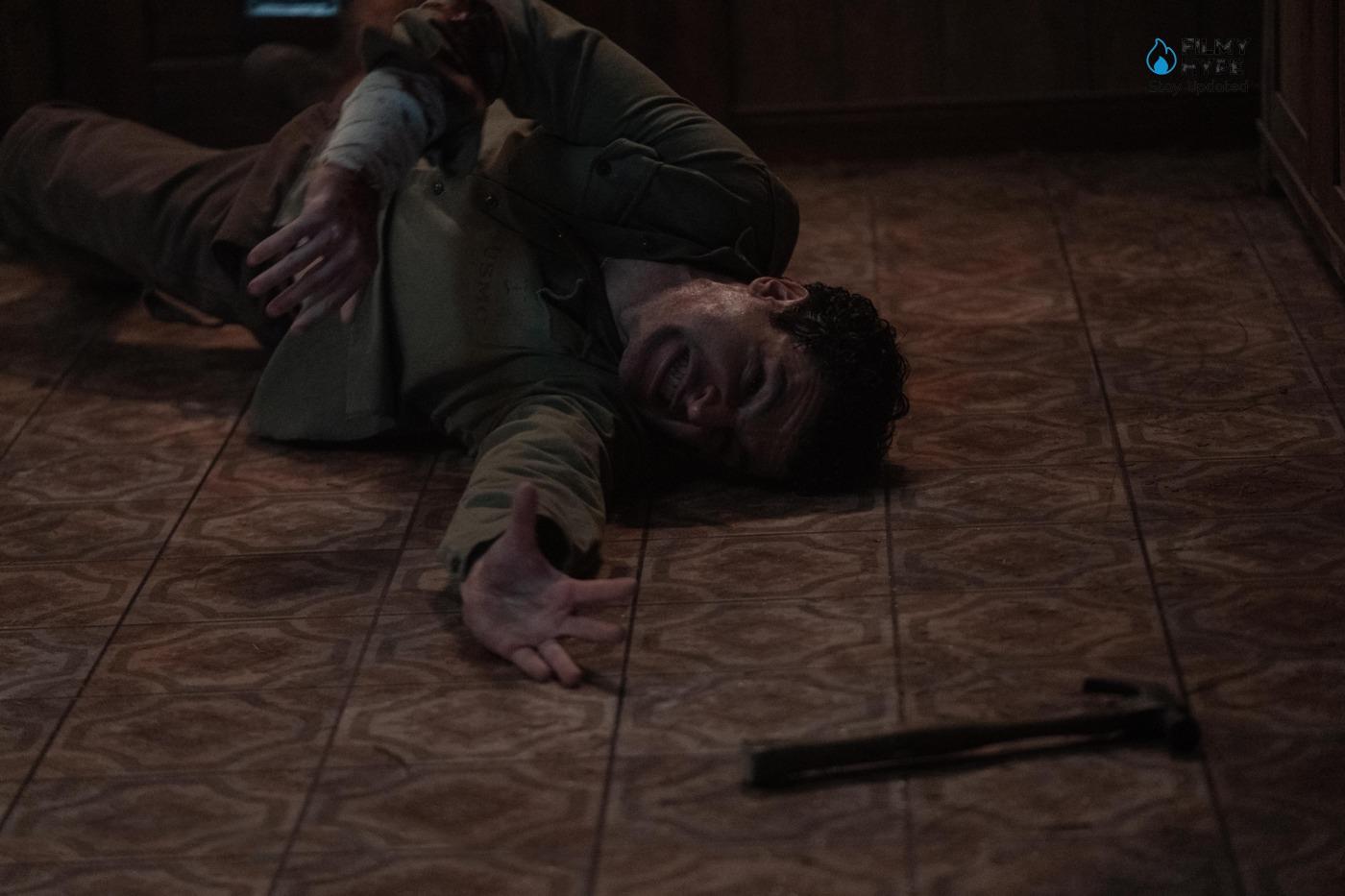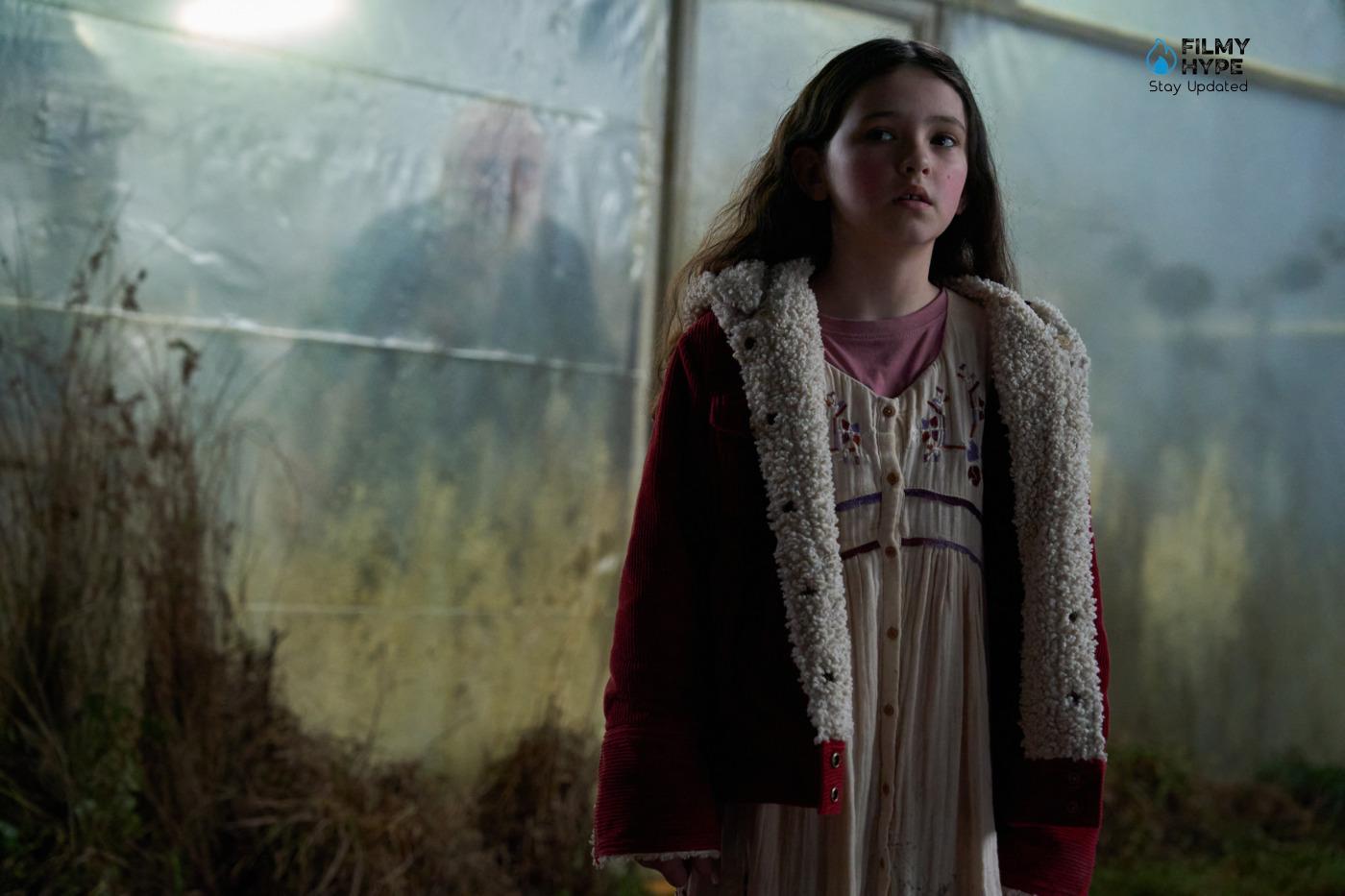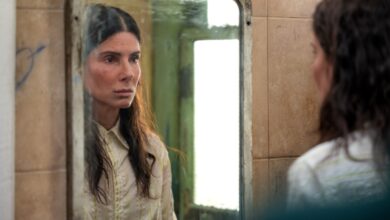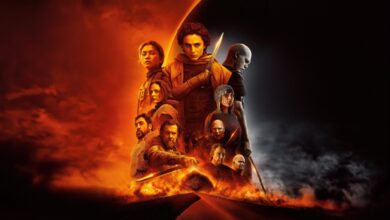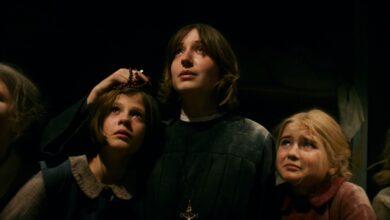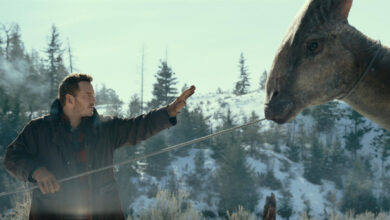Wolf Man Review (2025): The Drama Beyond Terror, Between Shadows and Fragility
Wolf Man, the horror film Universal/Blumhouse reinterprets the myth of the werewolf in a modern key. To watch Wolf by Leigh Whannell, there is doubt that The Invisible Man, also from Whannell, was nothing more than a white fly. In 2020 the Australian director reinterpreted one of the classic monsters of the Universal House in a splendid film, where the threat was conceived as the figure of a wealthy and abusive husband who used technology to make harassment of his wife even more subtle, even more petty. After all, it cannot be said that Universal Pictures was lucky to bring its abomination team back to the cinema. Dracula, the mummy, the Frankenstein monster and the latter’s wife, the invisible man, the Wolf Man, the monster of the Black Lagoon, the ghost of the Opera. All characters entered the cinematographic imagination thanks to the series of films released between 1930 and 1950 which shaped a certain idea of the monster and the representation of the monster.
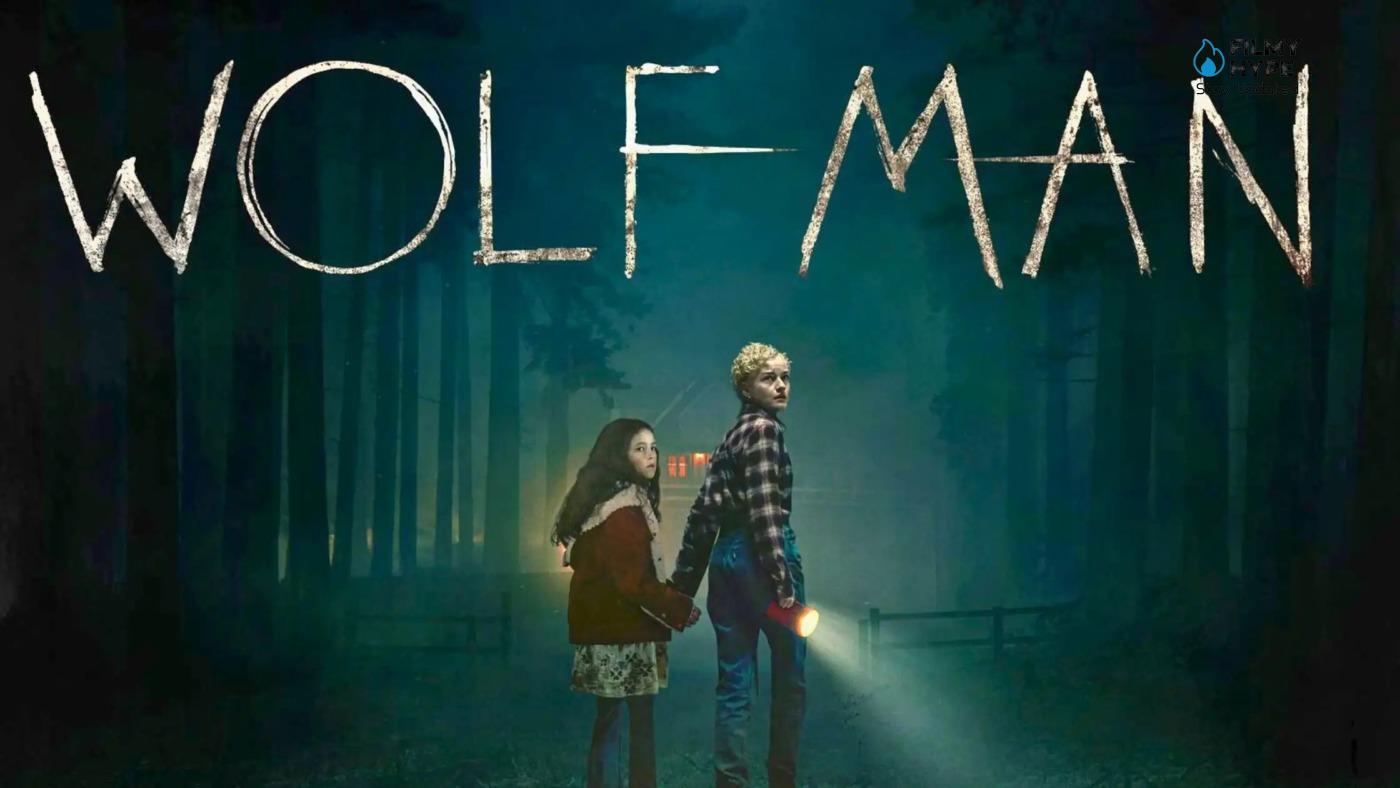
When Universal tried to exploit these intellectual properties in the period of maximum re-enactment of the already known in which Hollywood had been pouring for some time, everything was wrecked even before leaving the bay. The universe of monsters renamed Dark Universe and imagined with flower flowers of interpreters, from Johnny Depp to Russell Crowe, was put into formaldehyde immediately after the high, but not sufficient results, The Mummy with Tom Cruise. After the 2010 remake with Benicio del Toro, Universal has repeatedly tried to reinvent one of his great horror classics in the cinema, Wolf Man. After evaluating the hypothesis of a film placed in what was to be called Dark Universe (later the flop of La Mummy), the study decided to focus on a story in itself, along the lines of The Invisible Man directed by Leigh Whannell in 2020. And just Whannell, after the abandonment of Derek Cianfrance, found himself signing this reinterpretation of the werewolf myth, once again in collaboration with the Blumhouse (and Ryan Gosling, who was to play the protagonist in the version of Cianfrance, among the executive producers). And it is this reinterpretation that is spoken in our review by Wolf Man.
Wolf Man Review (2025): The Story Plot
Oregon, 1995; the background presents a young man Blake (Zac Chandler, who will later be Christopher Abbott in adulthood) who, in the company of his severe and hyper-protective father, lives in isolation in the wonderful, wooded expanses of Oregon. The parent tries to educate the child to discipline and above all to the attention to the dangers that, in the forest, seem to be threatening; the two, in the first sequences, come across a sinister and mysterious figure from which Blake’s father seems to be terrified but, before the creature is revealed, a time jump leads us to the present, to the contemporary. In 2025, to San Francisco, Blake is a writer dedicated to his daughter Ginger (Matilda Firth) while the wife Charlotte (Julia Garner), a tireless and industrious journalist, cannot devote herself to the family as much as she would like.
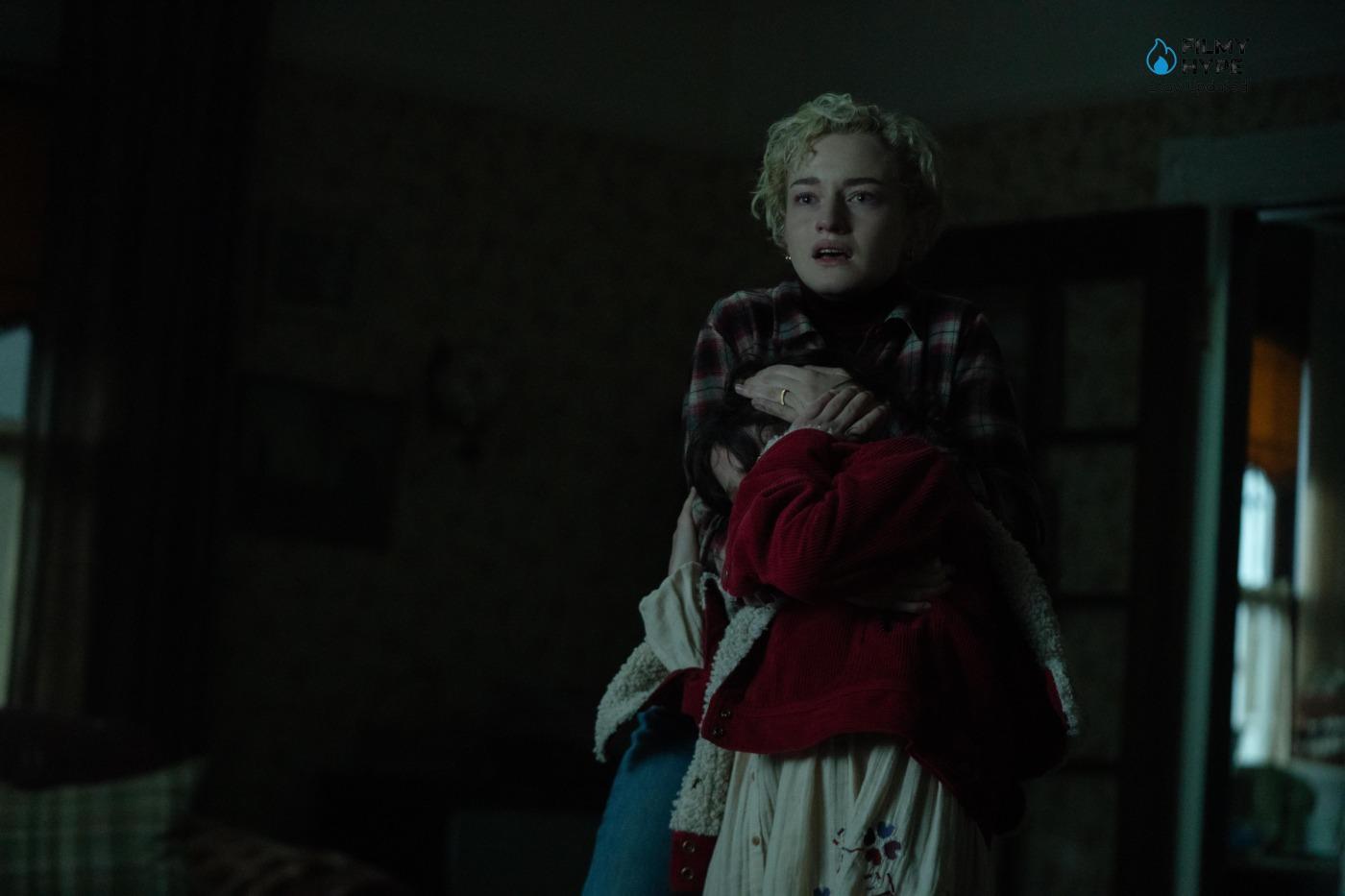
At the mysterious disappearance of the distant and almost forgotten father, the man proposes to the family to move to his childhood home for the holidays, but it is here that the three will live the longest night of their lives. Arriving in Oregon, Ginger, Charlotte, and Blake come across a childhood friend of his first, and then, in the scary werewolf that the family, after a serious accident, finds themselves forced to fight. Having holed up at home, however, the protagonists are forced to cope with the particular health conditions of the man of the house, who begins a slow metamorphosis that will accompany the rest of the narrative.
Wolf Man Review (2025) and Analysis
Excluding Blake’s childhood prologue, the film essentially relies on four performers, almost all in one location (a legacy of the pandemic, since Whannell and his wife Corbett Tuck wrote the script in 2020, in full lockdown): Christopher Abbott, Julia Garner is Matilda Firthas the three family members, and the performer chosen to physically embody, under numerous and impressive layers of makeup, the werewolf who contributes to the sleepless night of Blake, Charlotte and Ginger. Chamber drama more than a classic horror (remember the Gothic tones of the 1941 version and the aforementioned remake), where the show – however present when necessary – gives way to the most intimate horror, to the disease (a modern reinterpretation of the curse that usually accompanies the figure of the werewolf) which destroys from inside and manifests itself as a progressive plague fueling the tragic dimension of the premise on an aesthetic level.
There is not that extra flicker that characterized The Invisible Man, a film intelligently anchored in its time on a socio-political and technological level with its updating of the basic elements of the history of the famous horror icon (also restoring that disturbing and bad aura that previous versions had sweetened). Perhaps because the werewolf, in its animal simplicity, is still less reinventable than stripping it of all the mythological frills, which Whannell does by eliminating the usual speeches on the full moon and silver bullets. By creating, consequently, a film consistent in its analysis of terror as a foreign body that becomes a threat at zero kilometers, but also potentially frustrating for those who, given the promises of the title, could approach the vision with expectations closer to the golden years of Universal. Yet, certainly more interesting than the group linked to the Dark Universe would have given birth.
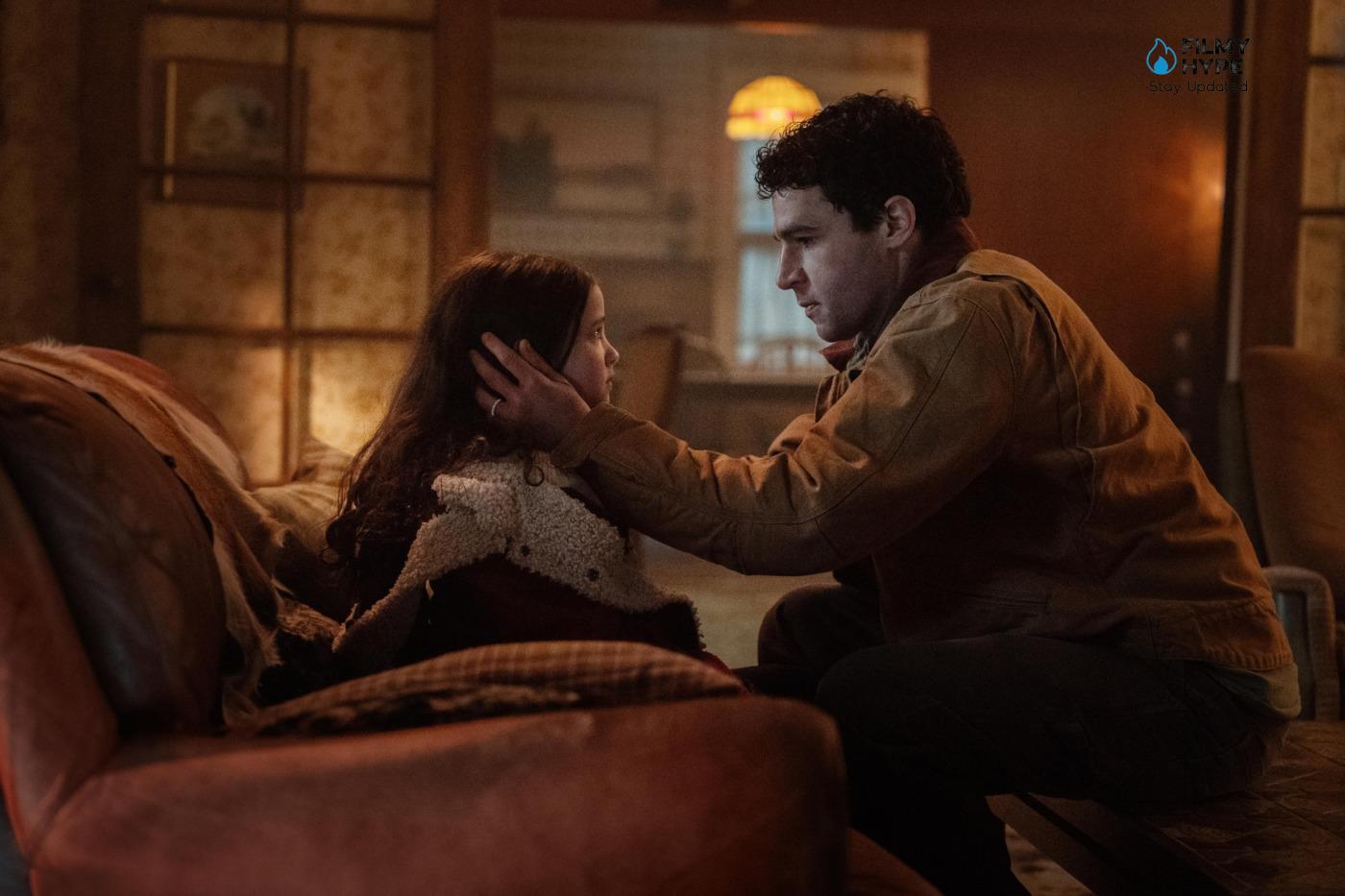
Wolf Man is therefore a simple story, small in fact, in which the encounter-clash with the monster becomes an excuse to tell the bond between fathers and children, laying bare the traumas and absences behind the need for empathy and love. Leigh Whannell, former director of the excellent, is directing the film The Invisible Man: a signature that with the intimate horror had already shown excellent things, and that with Wolf Man continues to explore horror as a vehicle for narrating weaknesses and traumas of an exquisitely human nature. In this case, the engine of the whole story is parenting and the relationship with one’s roots, with the Wolf Man who becomes the inner beast that torments the past of each of us, and who in the course of the story follows a precise common thread: the deconstruction of the father-son relationship which becomes, through the dark epic of the Lovell family, a rediscovery of the mother-daughter bond.
It must be admitted that this passage would perhaps have required a more in-depth development: in fact, we live a reversal of the perspectives in which Blake, a loving father and very close to his little Ginger, becomes the monster from which Charlotte, a career woman and therefore wife- absent mother, must protect the child by rediscovering her role as parent. In any case, Whannell plays very well with the suggestions, giving life to horror, especially in an atmosphere that does not yield to the enticements of the jumps care: Wolf Man‘s restlessness is based primarily on waiting for fear, with sequences composed mostly of very long and tomb silences, of faded silhouettes in the background, of shadows that slowly crawl into the darkness. The winning element of Wolf Man is that the monster is hardly seen you smell it, you feel it, you feel its presence, but it is elusive, it camouflages itself with darkness, exposing claws to the light now, fangs, now bright and bloodshot eyes.
Not that the film renounces a rigorous more gore component, then changing its tone in the last act. A halfway point perhaps a little too fast and sudden, but functional in reversing the trend of history and in distorting the rhythm, from the horror of atmosphere to action splatter in which the beast becomes the central and physical protagonist of the story, finally coming out into the open and highlighting the excellent artisan effects. Wolf Man is a horror who almost totally renounces CGI, if not in some sporadic transformation sequences, relying on the expressiveness and monstrosity of an effective and disturbing trick, which renounces the most fantasy and epic aspect of the myth of the Wolf Man and builds a deformed, hideous and monstrous creature. That scares not only for its appearance but also for the sounds it produces: in this sense, Wolf Man makes excellent use of sound, basing much of the restlessness on the growls and the creature’s breath, on the muffled noises that the metamorphosis makes a mind perceive that is slowly losing its humanity: everything around him fades to become a tangled mass of lights and ghosts.
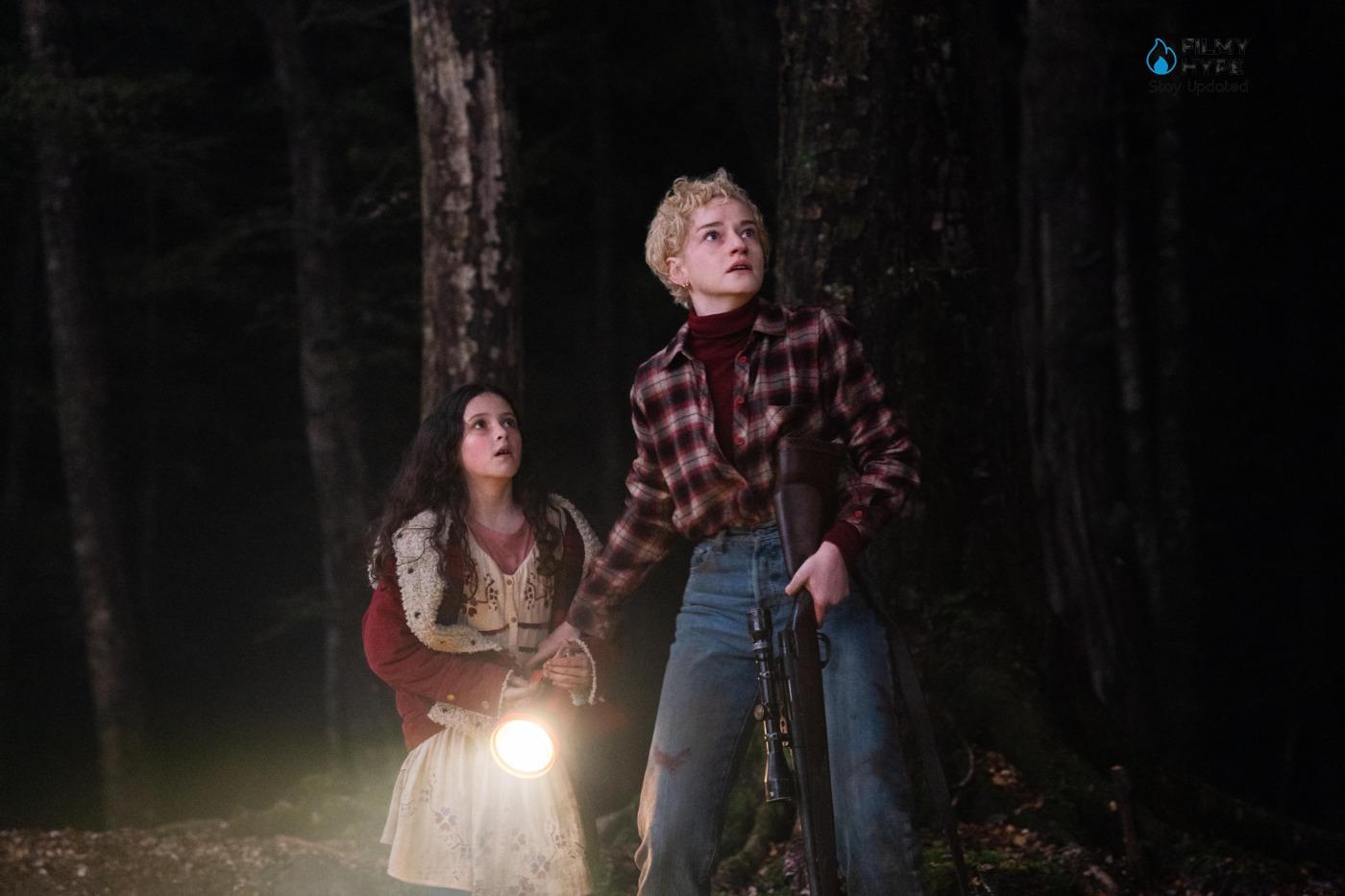
And whoever is in front of him turns into a smoky pile of meat: prey, were it not for that light in his eyes, for that voice now distant and almost indistinct, to remind him of the echoes of a love that prevails over hunger. Wolf Man‘s protagonist is Blake (Christopher Abbott), raised by a survivalist father in an isolated house in the middle of the forest. As an adult, he lives in the city and it is quite the opposite of his father’s figure: he is a caring and sweet father who has paused his career to take care of his daughter Ginger (Matilda Firth). However, the relationship with his wife Charlotte (Julia Garner) is in crisis. Nothing violent or dramatic, alone a subtle background attrition, a consuming affection, and distancing oneself from the little one in the center: she too busy with work, he too passive in letting go of his ambitions. The possibility of a trip to Oregon that Blake proposes to Charlotte to try to find the lost agreement is looming. Things go very badly right away, in a depopulated, rough, and sinister version of that rural America from which it is not difficult to understand why Blake escaped. There are no big surprises because Wolf Man doesn’t bet on taps, but on the conflict within the protagonist which manifests itself well before its transformation into a monster.
The relationship with his father – who is never framed as bad in and of himself – has transformed Blake into a man and a father who keeps at bay a less domesticated nature than he shows. Wolf Man tells the wounds that a complicated childhood (but not dramatized to the extreme, in the territory of violence) leaves to those who love them. Attacked by a werewolf, Blake and his family lock themselves into his paternal home, where, however, it is clear that he has been infected. The conflict of a man who kept at bay the character traits inherited from difficult relationships with his father is embodied in his transformation, which however ends up telling all that Blake is besides his scars: a loving father and husband, despite that unquenchable pain.
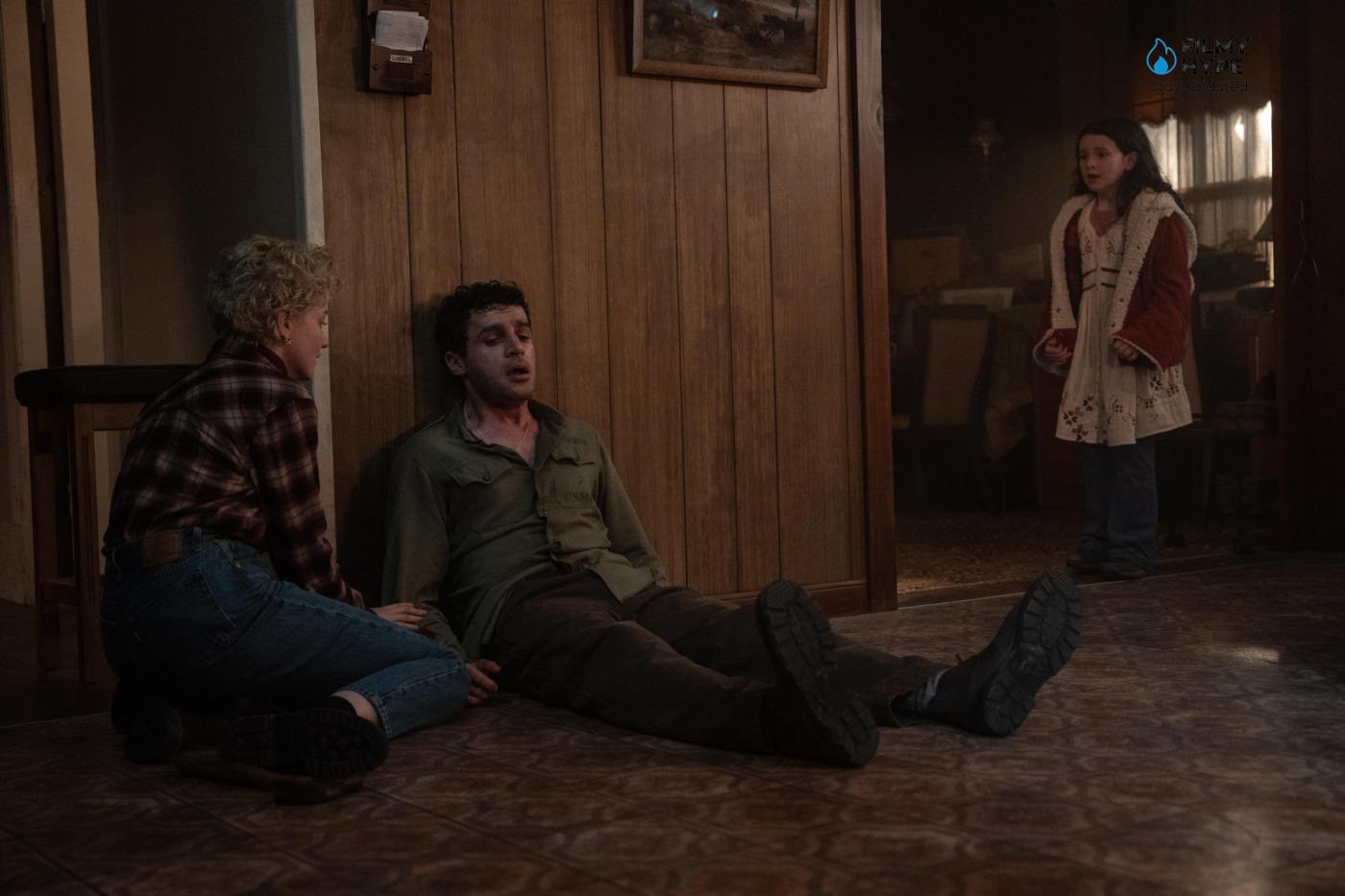
A makes Wolf Man appreciable is the setting in the forests of Oregon, a territory almost devoid of human presence, told since the introduction as hard as eternal in its beauty. The film knows how to be skinny and, indeed, perhaps searches for quiet tones, even in the appearance of its protagonist, who only vaguely recalls that of canids. Visually he has a nice intuition in how he makes Blake’s change of vision as he increasingly loses his humanity. Few intelligent script passages allow the film to meet its revelations with relative naturalness, with a small minute (103 minutes) that minimizes dispersive passages and little in focus. But that scratchy, and memorable is missing. No coup leaves admiring that makes man invisible a memorable film, but here too he focuses on a cast of interpreters not so well known, but of proven professionalism. After that fiasco of Kraven – The Hunter, Christopher Abbott shows that he can do more than the speck, flanked by one Julia Garner who always keeps his “city girl” on this side of the stereotype of the missing and stressed mother.
As anticipated, Wolf Man is a reboot and, as such, moves, works, and evolves in the progressive advance of the main events of the story. For fans, unfortunately, nothing new, but it was to be expected from such a project, which stands out only for some interesting ideas and subtleties that we will not anticipate. Starting from the underlying animal violence, the film directed by Leigh Whannell tries in every way to find its dimension, first of all imparting the humanity of the protagonists on the big screen, to then upset its already precarious balance. In such a process, writing and characterization are the masters, even before the most horrific and terrifying elements. The fragility of the protagonists of Wolf allows the public to get in touch with them immediately and to empathize with those imperfections that manifest themselves immediately. At the same time, a subcutaneous monstrosity moves that waits for nothing more than to explode in all its bestiality. In the middle, between a narrative structure that inevitably refers to many other similar films and monstrous violence, the family drama arises, the only and true protagonist of the story, which feeds on a very bitter tragedy without any way out.
Here it is Wolf tries to exploit the most elements of horror of its very nature to leave something that does not arrive and does not involve as much as he would like. The public does not have the time necessary to become attached to the main characters: it understands them but does not remain enraptured by them, and this lack makes itself felt throughout events, lightening even a few writing finds. The film doesn’t leave much to viewers, if not a deep bitterness which, however, is not enough to keep such a simple narrative on its feet, although fascinating for some of its characteristics specifically related to the “point of view” and the process of transformation into a werewolf in itself. Basic predictability is another element that does not help or enhance Wolf, giving easily readable plot turns from the beginning and rather “lateral”.
Developing from textbook narrative construction, Wolf makes use, however, of a careful and detailed direction, which continually approaches and moves away from a context that nobody would ever want to experience firsthand. It is some formal moments that leave their mark, leading to different readings that go beyond the main action. Some total and panoramic shots almost seem to reflect on the historical and secular relationship between man and nature, erasing the abyss that modernism of the metropolises has established over time, moving away from the primordial and animalistic origins of humanity itself. At the same time, we find the off, suffocating, and mysterious photograph of Stefan Duscio, a central element in the tension of a story made of shadows, distant sounds, and a continuous alternation of green and black, which suffocate playing with the vegetation and the state of abandonment of a house and a situation impressed in the middle of nowhere, between the terror of the unknown and the magic of a horizon unattainable.
Wolf Man Review (2025): The Last Words
Wolf Man is a more than good reworking in a modern key of a real cinematic myth. A horror mostly atmosphere, introspective and intimate, which exploits the monster to tell the parenting bond, although it does not give up a fair amount of action splatter in its latest segment. An operation that perhaps has the only defect of changing tone a little’ abruptly right towards the end, but coherently and functionally for the evolution of the story and the characters. Wolf Man, the reboot directed by Leigh Whannell, proposes itself as a modern reinterpretation of the classic of 1941, mixing family drama and primordial horror. Despite a narration that remains predictable and not very incisive, the film stands out for its careful direction and a photograph, signed by Stefan Duscio, capable of creating tension through a play of shadows and contrasts. The protagonists, albeit fragile and human, struggle to completely conquer the public’s empathy, letting the weight of history divide between the atmosphere and personal dramas. While failing to leave a deep mark, Wolf Man gently explores the dichotomy between man and beast, emphasizing the relationship between modernity and nature, without ever forgetting the dark and tragic charm of the werewolf figure.
Cast: Christopher Abbott, Julia Garner, Matilda Firth, Sam Jaeger
Directed By: Leigh Whannell
Filmyhype.com Ratings: 3.5/5 (three and a half stars)


